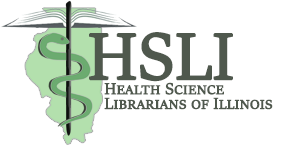(via Mackenzie Salisbury, School of the Art Institute of Chicago)
The DLF (Digital Library Federation) Digital Library Pedagogy group (aka #DLFteach) invites contributions to Volume 4 of the #DLFteach Toolkit, an open access resource providing peer-reviewed lesson plans and concrete instructional strategies.
Volume 4 of the #DLFteach Toolkit will be a resource for information professionals and faculty partners who wish to engage critical digital literacy concepts in their teaching. It will include adaptable lesson plans and learning objects that help learners develop the skills necessary to consume and create information in a digital landscape, as well as the habits of mind necessary to understand and critique information systems and their underlying power structures.
By encouraging both skills-based outcomes and contextual thinking, Volume 4 of the Toolkit will make learners aware of the inequities and structural biases of many digital tools, and help them enact alternative approaches. This year’s theme of Critical Digital Literacy. Potential topics addressing this theme could include the following.
· Data justice, data feminism, or other areas of critical data literacy
· Understanding, using, and critiquing tools powered by generative AI
· Media literacy, including the systemic underpinnings of mis- and disinformation
· Algorithmic literacy, especially topics related to surveillance capitalism and algorithmic injustice
· Issues of equity and inclusion in digital humanities projects
· Access to digital tools as impacted by ability diversity, systemic racism, and/or the digital divide
· Discipline-specific examples of critical digital literacy (Submissions from visual arts and humanities fields are especially encouraged!)
Here is the link to the current Call for Proposals | Deadline to Submit a Proposal has been extended to Friday, September 15, 2023.
If you know of other colleagues who are also doing work around these ideas/topics, please share with them as well. You can check out past toolkits here.
If submitting a proposal isn’t in your wheelhouse, we will also be putting out a call for reviewers and editors. If this is something you are interested in, please let me know and I will make sure to reach back out to you with those details as they become available.
Please let me know if you have any questions! My e-mail address is ssalisbury1@artic.edu.
